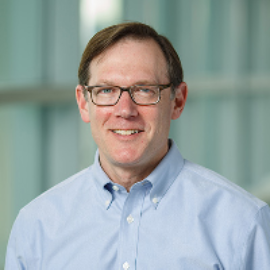Access Recording
Learning science is a good place to start, not stop: Taking the next steps toward creating an inclusive classroom and meaningful learning

Research in biology education has helped us better understand how students learn.
Learning objectives, backward design, and high structure not only increase learning, but also reduce the achievement gap among students.
The good news is that these kinds of practices have been incorporated in and are now a standard part of many classes, textbooks, and online systems.
However, incorporating these practices is just a first step.
It is also critical to be inclusive, offer diverse perspectives, tell stories, connect facts and concepts to real-world issues, and even spark joy.
In this webinar, James Morris will share resources and practices he uses in his introductory biology class at Brandeis University and in Biology: How Life Works to foster learning.
Speakers

James Morris
Professor of Biology, Brandeis University
James Morris is Professor of Biology at Brandeis University. He teaches a wide variety of courses for majors and non-majors, including introductory biology, evolution, genetics and genomics, epigenetics, comparative vertebrate anatomy, and a first-year seminar on Darwin’s On the Origin of Species. He is the recipient of numerous teaching awards from Brandeis and Harvard. His research focuses on epigenetics. He currently pursues this research with undergraduates to give them the opportunity to do genuine, laboratory-based research. Dr. Morris received a PhD in genetics from Harvard University and an MD from Harvard Medical School. He was a Junior Fellow in the Society of Fellows at Harvard University and a National Academies Education Fellow and Mentor in the Life Sciences. He is also a reader for the AP® Biology exam and an author of Biology for the AP® Course.